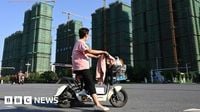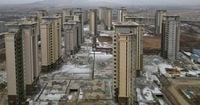On Monday, August 25, 2025, the Hong Kong Stock Exchange officially delisted China Evergrande Group, marking a dramatic and final chapter in the rise and fall of what was once China’s most prominent property developer. The removal of Evergrande’s shares from trading is not just a technicality—it’s a powerful symbol of the ongoing crisis in China’s real estate sector, one that has sent shockwaves through the world’s second-largest economy and left a trail of unfinished homes, unpaid creditors, and anxious investors.
Evergrande’s journey from high-flying market darling to pariah is a cautionary tale of debt-fueled ambition and regulatory reckoning. According to CNBC, Evergrande’s shares were first listed in Hong Kong in 2009, quickly becoming one of the country’s hottest stocks. By 2017, its market capitalization had soared to $51 billion, and founder Hui Ka Yan—who rose from rural poverty—was the richest man in Asia, with an estimated fortune of $45 billion. But that meteoric ascent was built on a shaky foundation: more than $300 billion in borrowed money, making Evergrande the world’s most indebted property developer.
This mountain of debt wasn’t just a corporate problem. Evergrande’s aggressive expansion meant it had 1,300 projects underway in 280 cities across China, with millions of homebuyers paying upfront for apartments that, in many cases, were never finished. When Beijing introduced its so-called “three red lines” policy in 2020, designed to rein in risky borrowing by property developers, Evergrande’s house of cards began to wobble. The company started offering steep discounts to keep cash flowing, but it soon defaulted on overseas debts. The final blow came in January 2024, when the Hong Kong High Court ordered Evergrande to be wound up after it failed to present a viable plan to shed its billions in liabilities. Trading in its shares was suspended, and by then, Evergrande’s market value had plummeted to just above $280 million—a collapse of over 99% from its peak.
The delisting, as BBC News reports, was both inevitable and irreversible. “Once delisted, there is no coming back,” said Dan Wang, China director at Eurasia Group. Liquidators have since taken control of more than 100 companies within the Evergrande group, with collective assets valued at $3.5 billion. Yet, as of July 31, 2025, only $255 million worth of assets had been sold—a realization described as “modest” by the liquidators themselves. Meanwhile, debt claims have soared to $45 billion, far higher than the $27.5 billion disclosed in December 2022, and the final tally may climb even higher.
Founder Hui Ka Yan’s own fall has been just as spectacular. According to BBC News, his fortune has dwindled to less than a billion dollars, and in March 2024, he was fined $6.5 million and banned from China’s capital markets for life after Evergrande was found to have overstated its revenue by $78 billion. Liquidators are now exploring whether cash can be recovered from Hui’s personal property to help satisfy creditors.
The consequences of Evergrande’s collapse have rippled far beyond its own balance sheet. As AP News and CNBC highlight, China’s property sector once accounted for about a third of the nation’s economy when related industries were included. The crackdown on excessive borrowing triggered a sector-wide liquidity crisis, with dozens of developers defaulting and many suspending construction projects. The result: hundreds of thousands of homebuyers left in limbo, massive layoffs across the real estate industry, and a sharp decline in home values—by as much as 30% in some major cities, according to economist Andy Xie.
The crisis has also weighed heavily on consumer confidence and household wealth. In China, families often pour their savings into property, so falling prices have made many feel poorer and less willing to spend or invest. Alicia Garcia-Herrero, chief economist for Asia Pacific at Natixis, told BBC News, “With housing prices dropping by at least 30%, many Chinese families have seen their savings fall in value.”
Despite the turmoil, Beijing has been careful not to directly bail out developers. Instead, the government has rolled out a patchwork of measures: billions in lending and subsidies to ensure unfinished homes are delivered, relaxed mortgage requirements, and encouragement for local governments to buy up excess apartments for affordable housing. According to AP News, local governments have even been urged to speed up lending to cash-strapped developers, and in recent months, cities like Shanghai and Beijing have eased restrictions on home purchases in the suburbs.
Still, the road to recovery is expected to be long and uncertain. Goldman Sachs warned in June 2025 that property prices in China will continue to fall until 2027. Dan Wang, the Eurasia Group director, estimated that the market may only “hit the bottom” in about two years, when demand finally catches up with supply. “There is no real light at the end of the tunnel,” Garcia-Herrero said bluntly.
Meanwhile, other major developers are teetering on the brink. China South City Holdings was handed a winding-up order earlier this month, and Country Garden, another giant, faces a crucial court hearing in January 2026 as it seeks to restructure more than $14 billion in foreign debt. As Professor Shitong Qiao from Duke University told BBC News, “The whole property sector has been in trouble. More Chinese property firms will collapse.”
For Evergrande’s creditors—many of them overseas bondholders—the prospects of getting repaid are slim. Most of the group’s assets are located on the Chinese mainland, making enforcement of Hong Kong court orders difficult. As Brian McCarthy of Macrolens observed in CNBC, “For overseas investors investing in China through Hong Kong, you have limited recourse to onshore assets if things go bad.”
Yet, amidst the wreckage, there are signs that the worst may be over. “We are past the peak default wave,” said Leonard Law, a senior credit analyst at Lucror Analytics. Many private developers have already defaulted and are undergoing debt restructuring, with more than 1.2 trillion yuan ($167 billion) in liabilities being addressed so far this year, according to Knight Frank’s Christine Li.
Beijing’s focus now seems to be shifting away from real estate as the engine of growth. President Xi Jinping is betting on high-tech industries—renewable energy, electric cars, robotics—to drive the next phase of China’s economic development. As Dan Wang put it, “China is in a deep transition to a new age of development.”
For the millions of Chinese families, investors, and workers affected by the property bust, the scars will linger. As Evergrande’s delisting makes clear, the era of easy money and unchecked expansion is over—and the world is watching to see what comes next.


